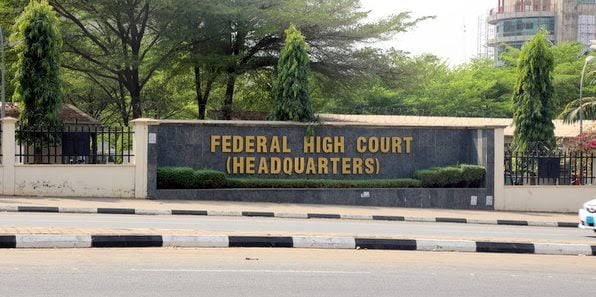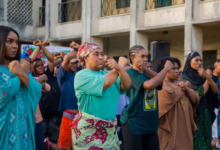Nigerian court unfreezes N89 million in bank accounts previously indicted for illegal crypto dealings

The Federal High Court in Abuja has lifted the freezing order on six bank accounts previously indicted by the Economic and Financial Crimes Commission (EFCC) for conducting cryptocurrency exchanges between naira and other currencies at rates detrimental to Nigeria‚Äôs financial system.¬
On Monday, Justice Emeka Nwite lifted the preservatory order on the following accounts: Awe Microfinance Bank (N2,367,624.45), Olalekan Sibiku Adesugba (N3,375,435.41), Ad Ishola Farms (N10,104,482.91), H. Ishola Multibiz Int‚Äôl (N16,505,822.74), Microtech Investment Services (N3,545,660.73), and HML Business Ventures (N53,585,649.77).¬
This decision came after the EFCC filed an affidavit on November 25, 2024, stating that its investigation revealed the funds in these accounts, totaling N89,484,694.01, were not linked to any unlawful activities.¬
Nairametrics had previously reported that the¬EFCC, on September 4, 2024, secured an order freezing N548.6 million in bank accounts belonging to suspected crypto users on platforms such as ByBit, KuCoin, and others, based on their alleged role in fluctuations of the naira.¬
The motion, dated September 3, 2024, which the court relied on to freeze the funds, focused legal attention on major foreign crypto platforms ByBit and KuCoin, accusing them of contributing to the devaluation of the Nigerian currency.¬
Facts of the Case¬
- An EFCC investigator, Okoro Philip, stated in his affidavit, exclusively seen by Nairametrics at the time, that in the months before April 18, 2024, Nigeria experienced significant currency stabilization, with the dollar trading at N980 to $1 on the black market. However, on April 18, 2024, the dollar surged from N1,250 to $1 in the parallel market.¬¬
- He alleged that further investigation and intelligence indicated that ‚Äúthese fluctuations were primarily driven by activities on platforms such as ByBit, KuCoin, and other similar cryptocurrency platforms.‚Ä̬
- Philip also noted that 22 bank accounts, domiciled in various Nigerian banks and mentioned in the motion, belonged to individuals selling USDT, who provided their naira accounts to transfer the naira equivalent of the USDT.¬
-
- The prosecution also accused the cryptocurrency platforms of deliberately ignoring Nigeria‚Äôs anti-money laundering laws and regulations, allowing users to operate under a veil of secrecy.¬
- EFCC counsel, Ekele Iheanacho SAN, had urged the court to freeze the bank accounts listed in the motion, which belonged to individuals being prosecuted or investigated for unauthorized foreign exchange dealings, money laundering, and terrorism financing, pending the conclusion of the investigation and prosecution.¬¬
- The motion was filed in open court on September 4, 2024, and granted by Justice Emeka Nwite.¬
Discharge Motion¬
- About a month after the initial order, Iheanacho filed an affidavit to discharge the freezing orders on some of the 22 accounts.¬¬
- In an affidavit of facts related to the investigation, deposed by EFCC operative Charles Anele and exclusively seen by Nairametrics, he explained that the EFCC had conducted various investigative activities on the accounts under the freezing order.¬¬
- ‚ÄúThe investigation activities include analyzing financial records of transactions carried out by the operators of the bank accounts to determine the sources and destinations of the funds; inviting and interviewing the operators of the accounts and some individuals who could shed light on the suspicious transactions,‚Ä̬†he stated.¬
- He also revealed that, following a plea bargain arrangement, an operator of the account listed at No. 21 in the motion forfeited funds to the Federal Government of Nigeria.¬¬
- Another company linked to the suspect was convicted in charge No. FHC/ABJ/CR/308 between FRN and¬Official Gredo Limited.¬
- He added that the investigation showed that the funds in the accounts listed at Nos. 9¬† were linked to one Oty U. Stanley, who is currently facing criminal prosecution in charge No. FHC/ABJ/CR/306/2024, where parties have entered into a plea bargain agreement.¬
- However, he stated that investigations into six of the 22 frozen accounts had revealed no connection to any illegal activities, leading to a request for the court to unblock those accounts.¬
‚ÄúThe Applicant (EFCC) has concluded its investigation about the accounts listed at Nos. 5, 8, 10, 11, 19, and 22 in the motion, and the funds in these accounts have not been linked to unlawful activities.¬
-
- He also revealed that, following a plea bargain arrangement, an operator of the account listed at No. 21 in the motion forfeited funds to the Federal Government of Nigeria.¬¬
- Another company linked to the suspect was convicted in charge No. FHC/ABJ/CR/308 between FRN and¬Official Gredo Limited.¬
- He added that the investigation showed that the funds in the accounts listed at Nos. 9¬† were linked to one Oty U. Stanley, who is currently facing criminal prosecution in charge No. FHC/ABJ/CR/306/2024, where parties have entered into a plea bargain agreement.¬
- However, he stated that investigations into six of the 22 frozen accounts had revealed no connection to any illegal activities, leading to a request for the court to unblock those accounts.¬
‚ÄúThe Applicant (EFCC) has concluded its investigation about the accounts listed at Nos. 5, 8, 10, 11, 19, and 22 in the motion, and the funds in these accounts have not been linked to unlawful activities.¬
‚ÄúGiven the outcome of the investigation so far, it is appropriate to discharge the preservatory order on the accounts listed at Nos. 5, 8, 10, 11, 19, 21, and 22.‚Ä̬
- He further stated that investigations into the remaining accounts had not been concluded, as some individuals had yet to honor their invitations, and more documents were being analyzed.¬
What Transpired in Court¬
- At the resumed hearing on Monday, Iheanacho urged the court to discharge the freezing order on the identified bank accounts, relying on the affidavit already submitted.¬
‚ÄúApplication granted,‚ÄĚ Justice Nwite responded, thereby unfreezing the six bank accounts.¬
The judge also directed that the respective banks be notified in writing of the discharge order for other indicted accounts, whose freezing period had expired due to the effluxion of time.¬
-
What You Should Know¬
This development follows a previous court order freezing 1,146 accounts for 90 days (from April 25, 2024, to July 23, 2024) due to illegal financial transactions.¬
An affected party later applied to have several of the freezing orders lifted, and the court granted the request.¬
However, the EFCC filed a new motion to continue its investigation, having pressed criminal charges against some of the account operators.¬
Nairametrics reports that the EFCC and Federal Inland Revenue Service (FIRS) are already in court against Binance over tax evasion and money laundering offenses involving $35.4 million.¬
The EFCC‚Äôs motion later extended its indictment to ByBit and KuCoin, accusing them and several unnamed crypto platforms of enabling Nigerian users to engage in ‚Äúprice discovery, confirmation, and market manipulation‚ÄĚ through their platforms, causing ‚Äúdistortions in the market, resulting in the naira losing its value against other currencies.‚Ä̬
ByBit remains one of the few cryptocurrency exchanges still offering a peer-to-peer section on its platform, following a crackdown on other exchanges like Binance, which led to the delisting of their peer-to-peer categories.¬
ByBit also offers options for crypto trading on its platform and remains a favorite among Nigerian crypto traders. Nigeria‚Äôs National Security Adviser (NSA) has classified crypto trading as a national security issue.¬
- This led to the Central Bank of Nigeria (CBN) ordering five fintech companies‚ÄĒOPay, Palmpay, Moniepoint, Kuda, and Paga‚ÄĒto stop onboarding new customers.¬¬
In response, these fintech companies later announced the prohibition of cryptocurrency or virtual currency transactions on their platforms.¬
Under CBN supervision, the fintech companies are now required to report any account trading in cryptocurrency to the NSA through their regulator, the CBN.¬
KuCoin‚Äôs VAT charge comes amid the Nigerian government‚Äôs clampdown on cryptocurrency exchanges and related transactions, which led to Binance exiting the market.¬
This crackdown also forced Binance and KuCoin to halt NGN/USD P2P trading on their platforms.¬
- My name is Nnaemeka Onyekachi, a writer, public speaker and an award winning journo with over 5,000 reports on a wide range of topics associated with the Nigerian society and the international community. Currently serving as a Senior Editorial Analyst at Nairametrics, my passion lies in delivering insightful financial,corporate, economic news and analysis on foreign relations, governance, judiciary and legislature.






